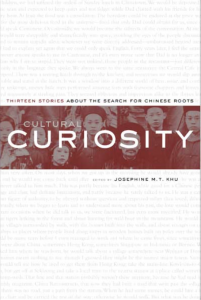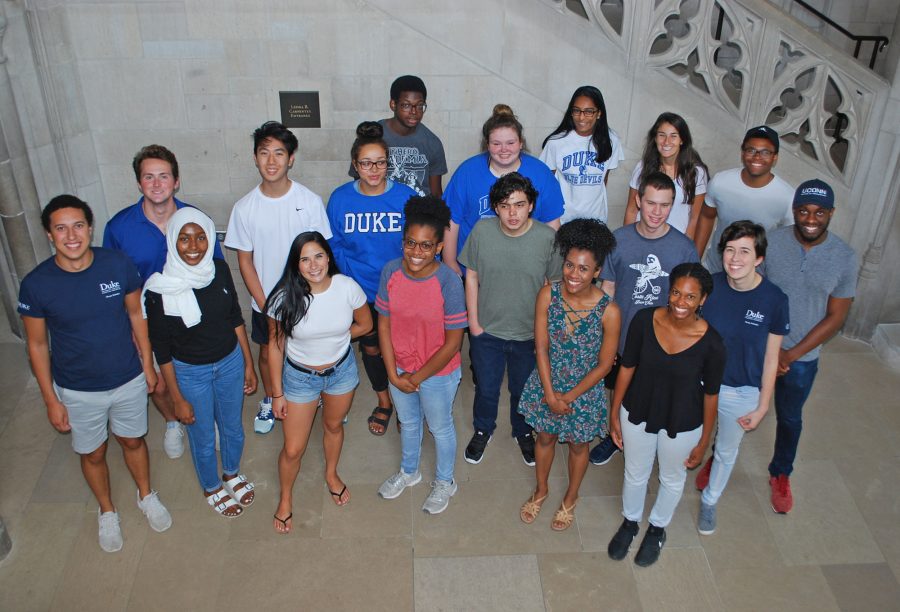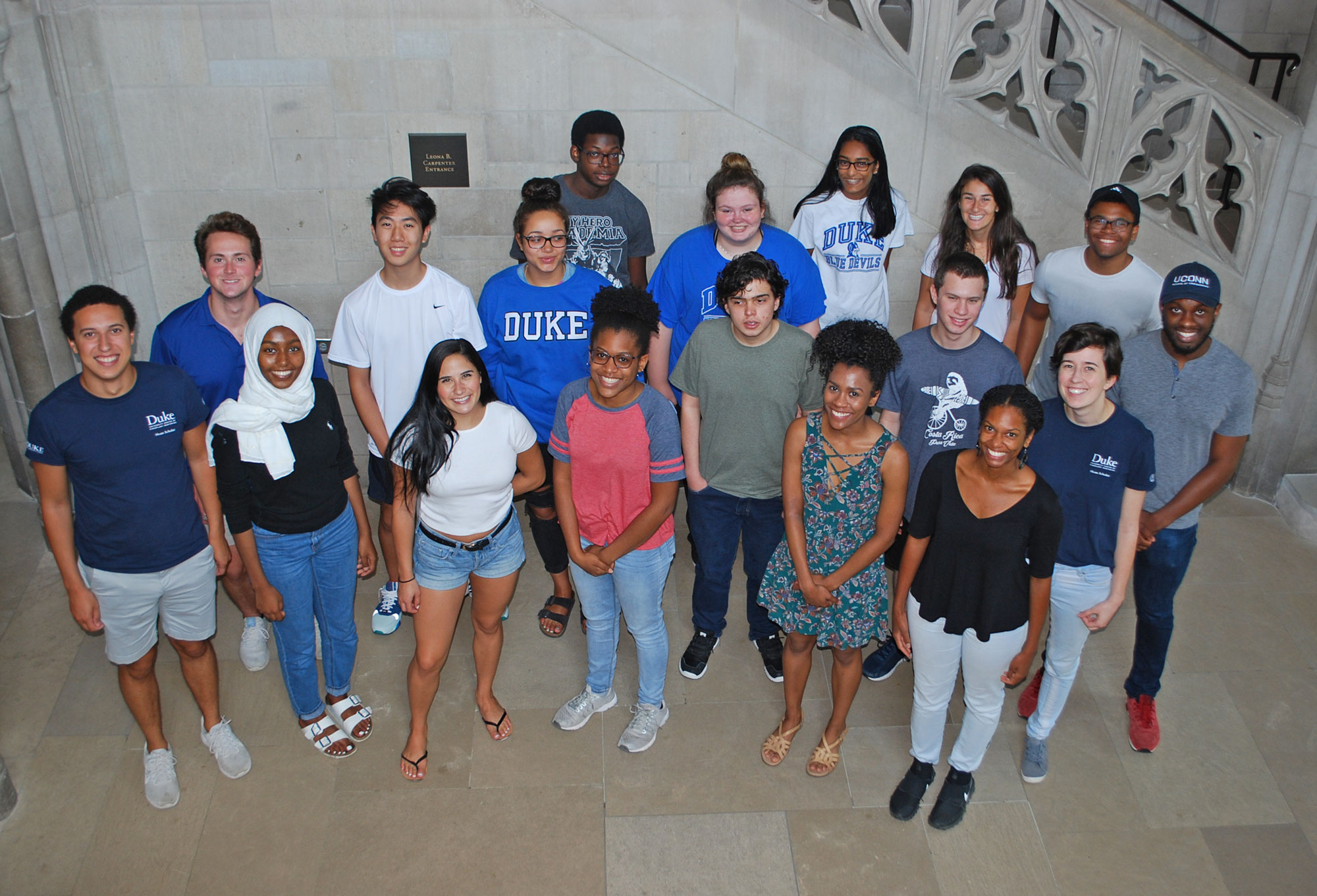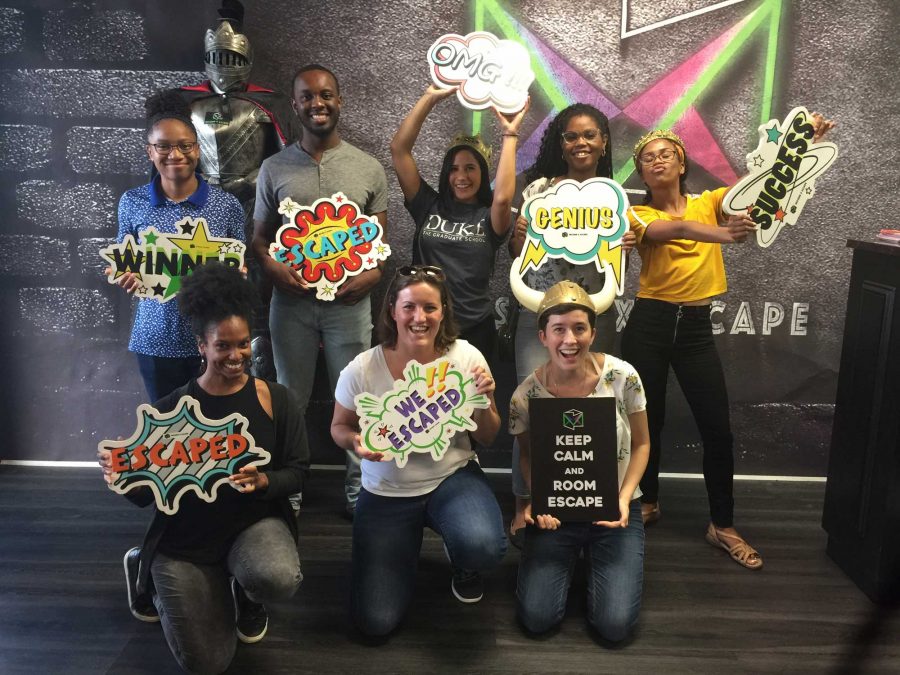By Caroline Amoroso
2018-2019 Graduate School Administrative Intern for the Duke UCEM
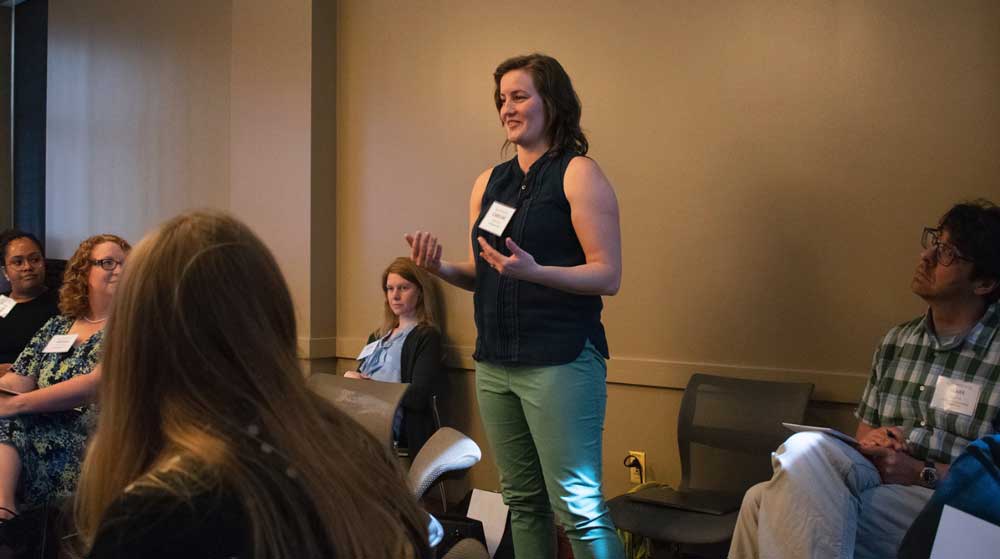
Caroline Amoroso speaks during a discussion about recruitment at the spring meeting of faculty members affiliated with the Duke UCEM.
Over the past year, I served as the graduate student administrative intern for the University Center of Exemplary Mentoring (UCEM) at Duke, a new initiative funded by the Alfred P. Sloan Foundation and led by The Graduate School. Each year, this program provides support and supplemental funding to approximately 10 new Ph.D. students (Sloan Scholars) from underrepresented racial and ethnic backgrounds in the physical sciences and engineering. In my role as administrative intern, my responsibility was to serve as a peer mentor to the Sloan Scholars, to check in with them regularly, to foster community among the Scholars, and to provide a student perspective in the oversight of the program in its first year.
During my early time as a graduate student at Duke, I was very involved with Women in Science and Engineering (WiSE), a student group that connects women graduate students from across science and engineering fields and hosts events where they can share experiences, resources, and ideas for change. Through this student organization, I found a community of like-minded women with whom I could air grievances, seek advice, and find support.
Perhaps most importantly, WiSE helped me find a sense of belonging, a feeling that helped me combat the isolation and imposter syndrome that commonly afflict graduate students, especially underrepresented students. When I became president of WiSE, I advocated to be part of conversations with several of the deans and associate deans in The Graduate School. Those interactions and the reward I felt for my work with WiSE made me curious about a career in administration and how an administrative position might offer a unique opportunity to influence campus culture and affect change.
Given that interest, when I decided to seek funding for a sixth year, the Sloan administrative intern position caught my eye. I was especially motivated by the opportunity to translate my experiences in WiSE into a more formalized program that would benefit students in academic departments where achieving racial and ethnic diversity has been a particular challenge—in the physical sciences and engineering.
Peer, Mentor, Friend
The Duke UCEM aimed to provide individualized support to students and build a community based on shared experience, with the ultimate goal to fix the “leaky pipeline” for underrepresented students in graduate education. The position offered an opportunity to make an impact on the culture and norms in the academic departments where it was needed the most.
Immediately after being offered the position, I was welcomed onto the Oversight Committee, which planned and carried out most of the daily functions of the Duke UCEM. I enjoyed helping to plan events and providing a student perspective on important conversations among the group. In those meetings, I witnessed how administrators workshopped ideas and collaborated to put concepts into concrete action steps.
By far the most fun and rewarding part of my role was getting to know the Sloan Scholars. I watched as they established social networks, found their footing in their departments, and began to discover who they would be in graduate school. My role was to be a resource to the Scholars, including helping them learn their way around campus with a scavenger hunt. I got to know the Scholars individually through group and individual meetings, where they updated me on their progress in the semester.
I also served in a less formal capacity, as the Scholars’ peer and friend. I helped to plan social events such as an escape-room event and a group viewing and discussion of the movie BlacKkKlansman, which fostered community. I gave students advice and listened to their reflections on their first year of graduate school.
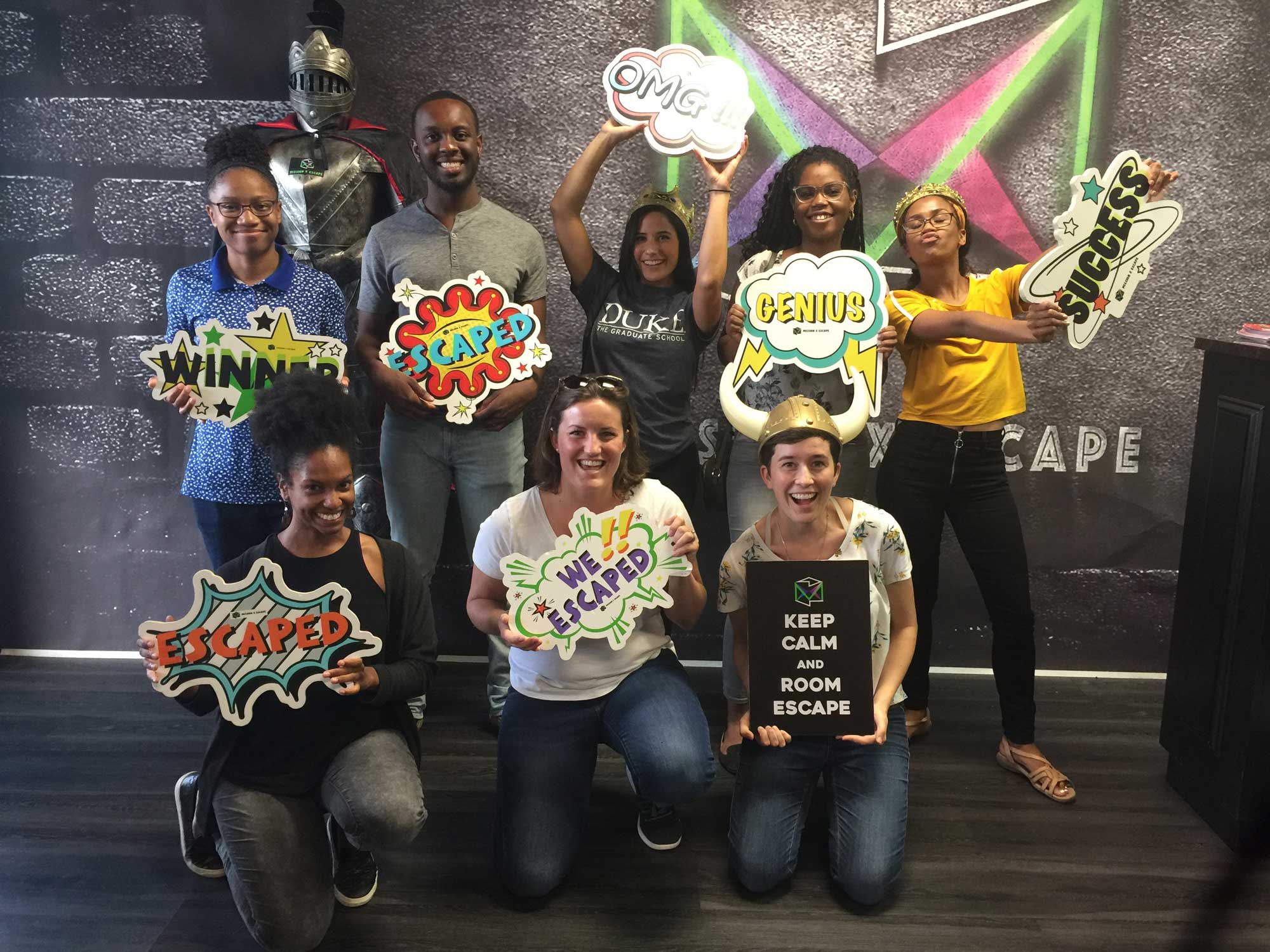
An escape-room outing was one of the activities that Caroline Amoroso (front row, center) organized for the first cohort of Sloan Scholars.
Making It OK to Ask for Help
In general, I found that the Sloan Scholars experienced the classic challenges that most students undergo in their first year. I had heard many similar stories from my peers in WiSE and in my department, but I was surprised and impressed that the Scholars knew how to ask for help so early in their careers. They knew where to find the resources that they needed. They were not afraid to approach their advisers or other faculty with questions or problems that they were experiencing. In their regular check-ins with administrators and with me, they voiced the same concerns, challenges, and feedback, indicating that they were being very transparent in their self-assessments and communicating their true feelings.
Having witnessed many students navigate the first year of graduate school, I recognized that the Sloan Scholars were exceptional in this regard. Too often, students are too self-conscious or insecure to admit when they need help—or don’t realize the resources available to them—until the problem has gotten so big that it has become debilitating or insurmountable. By providing a network of support that included peers, faculty, and administrators, the Duke UCEM created an environment where the Scholars were not afraid to seek help or admit they were struggling, which made it possible to better support them and find solutions to small problems before they became big ones.
Reflecting on this experience, I recognize how successful this first year of the program has been in several respects. First, the Sloan Scholars started graduate school with a built-in community of peers for support. This community has been nurtured by the resources of the Sloan program, but has also taken on its own life, with Sloan Scholars independently perpetuating the relationships with each other throughout their first year.
In addition to their peers, the Scholars also started graduate school with a built-in support network of faculty, administrators, and staff—the kind of support system that many students have to cultivate over years in graduate school. They have people to talk to at every level of the university if challenges arise (and in graduate school, they almost certainly will). This support system will help students recognize and combat many of the common obstacles, like imposter syndrome, feelings of isolation, and the intellectual challenges of becoming independent researchers.
The Importance of Individual Efforts
Personally, this experience gave me an opportunity to apply skills that I developed early in my graduate career in the leadership of WiSE in a setting where those skills could directly contribute to an important university initiative. Before this position, I figured that the hundreds of hours I spent on student group activities would pay dividends in terms of personal fulfillment and perhaps indirectly by helping me through graduate school. But my internship showed me that there are important roles in the administration where I can use my past experiences, like developing solutions to challenges faced by graduate students, considering how department and campus cultures evolve, and advocating for my fellow students. This position has made me seriously consider an eventual role in university administration as a future career step.
More broadly, this internship has also taught me about the necessary role that other members of the university community—including faculty, postdocs, and other staff—play in changing the culture around diversity in higher education. For underrepresented students entering Ph.D. programs who aren’t lucky enough to have a built-in support network like the one the Duke UCEM provides, the burden falls on them to create these networks on their own—something that is much harder to do for students who may already feel isolated and singled out in a department of people who don’t look like them. Through this position, I realized how much the efforts of individual faculty and staff members can contribute to recruiting, retaining, and supporting underrepresented students getting Ph.D.s.
As I move forward into an academic career and go on to mentor undergraduate and graduate students, I will keep in mind the tools that I have learned through my work for the Duke UCEM. I plan to apply this understanding and my central values around diversity to change patterns of representation in my field from the inside.
Caroline Amoroso (Ph.D.’19 Evolutionary Anthropology) served as the Graduate School Administrative Intern for the University Center of Exemplary Mentoring at Duke during the 2018-2019 academic year. She received her Ph.D. in May and will be starting a postdoctoral position in the Biology Department at the University of Virginia.
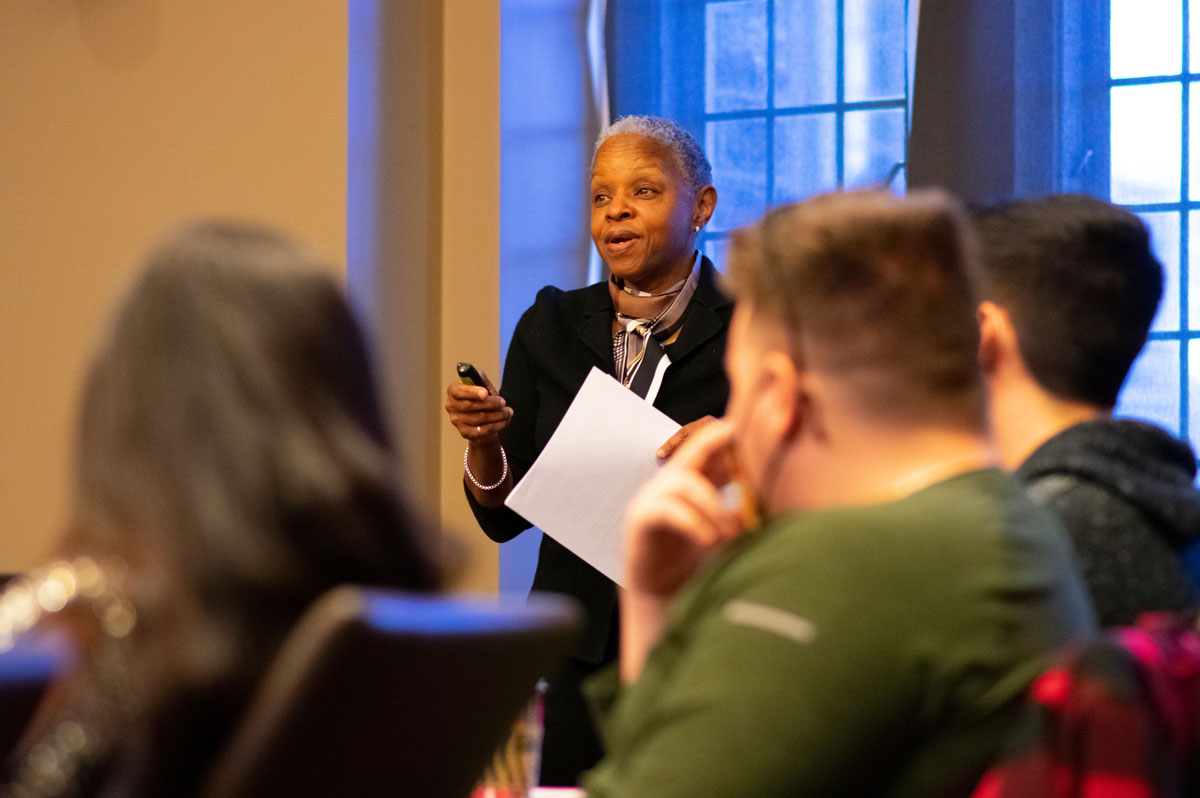 Interest: being deeply interested in what you are working on
Interest: being deeply interested in what you are working on
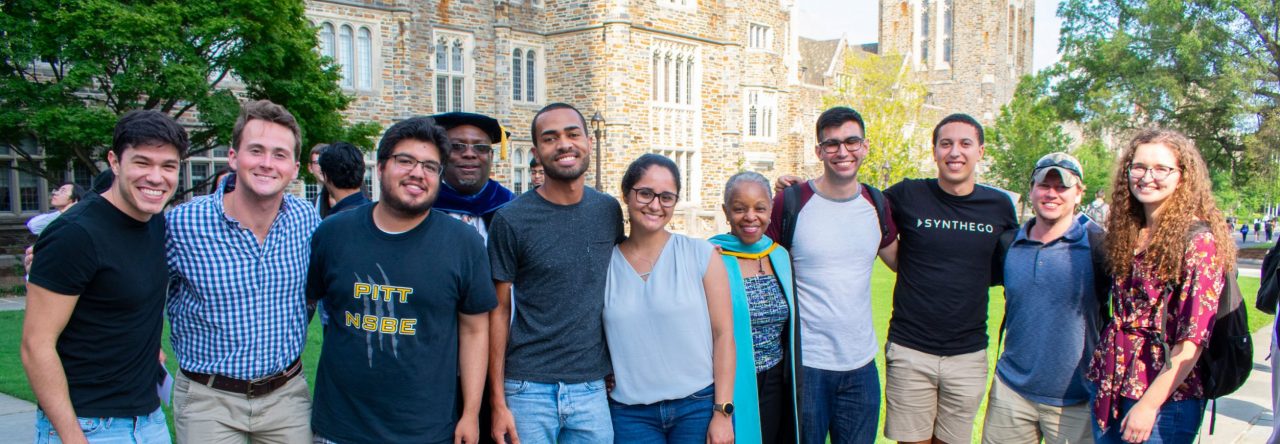

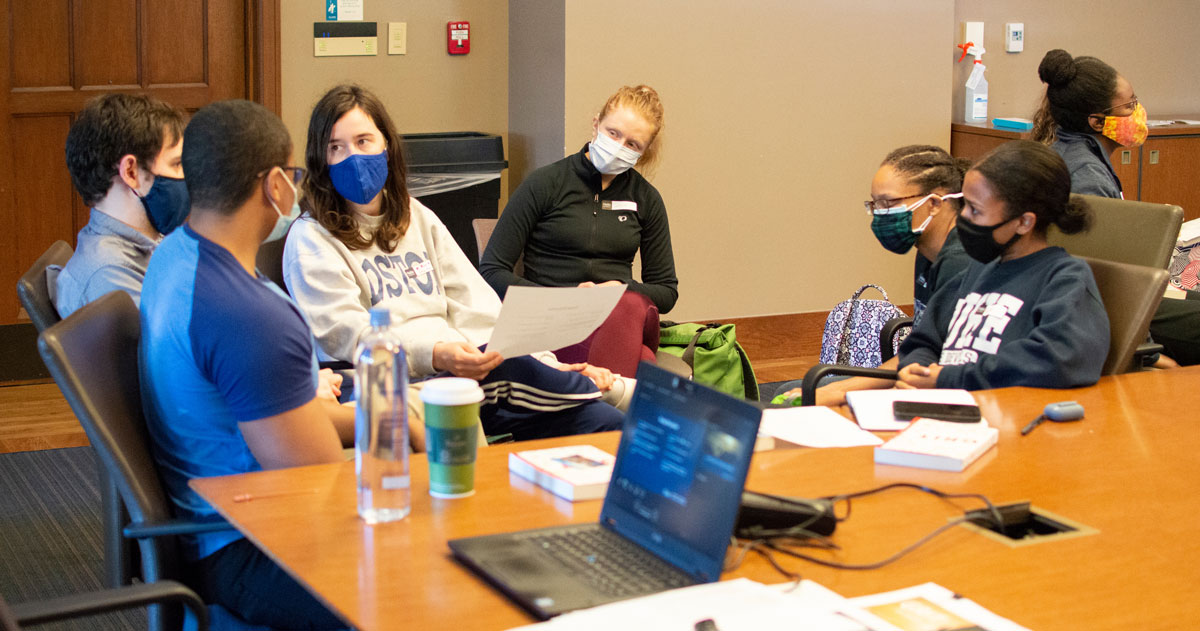
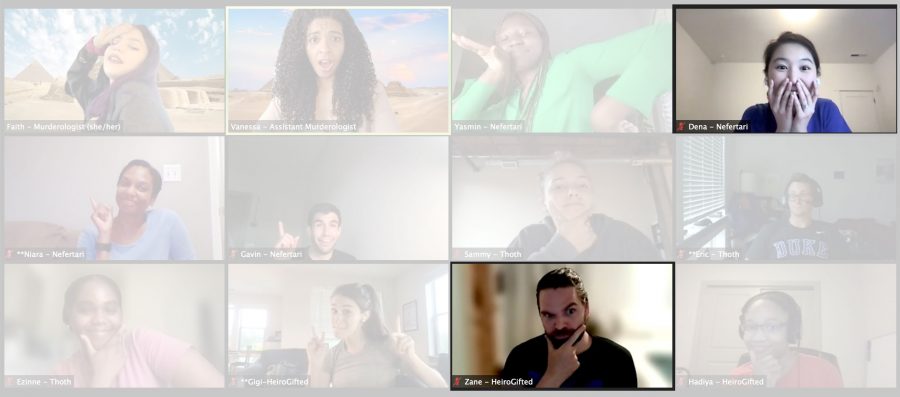
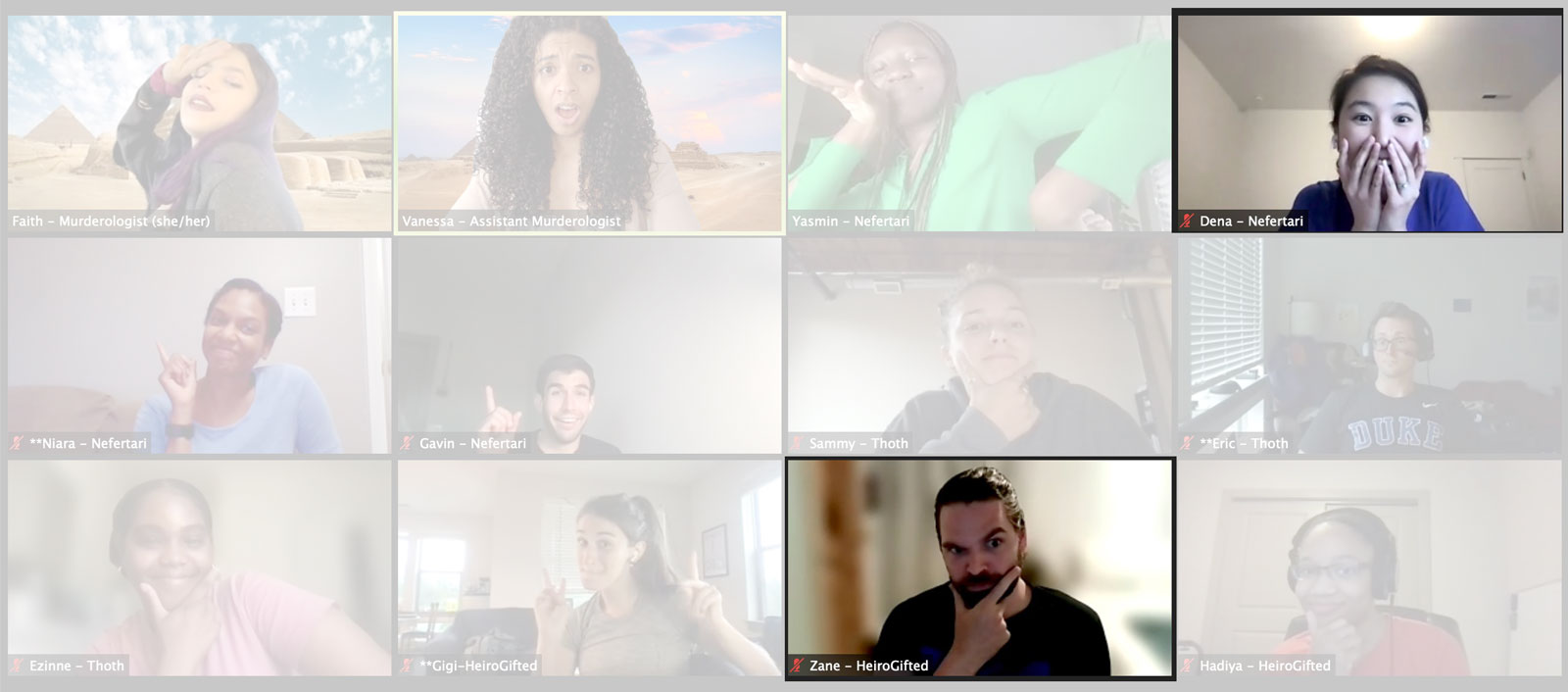

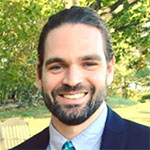
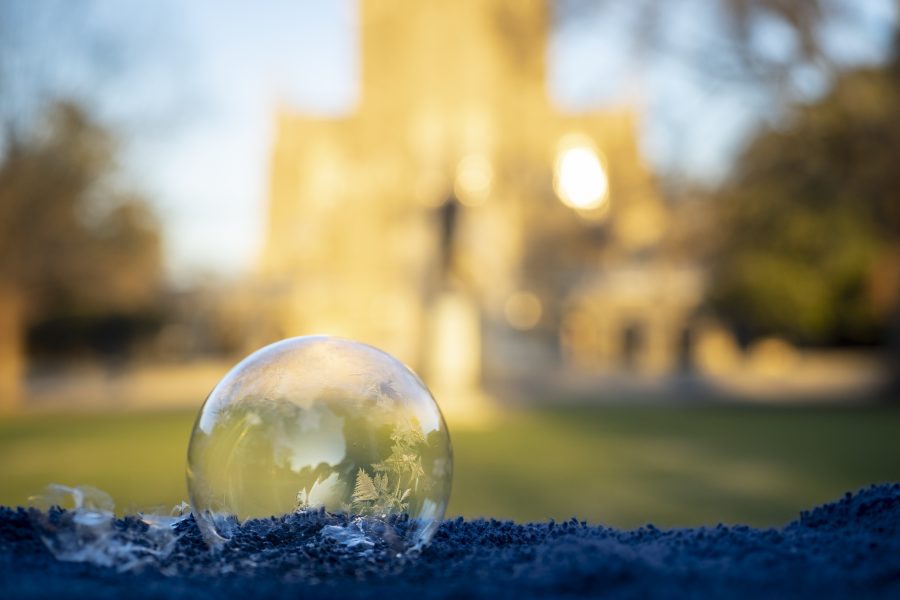
 Podcasts & Playlists:
Podcasts & Playlists: 




